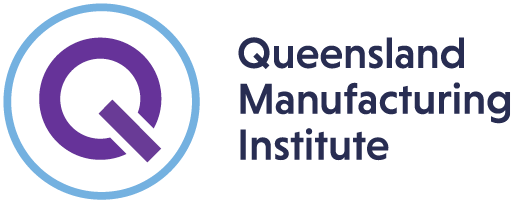Inspiring careers in aviation manufacturing
The Gateway to Industry Schools Program for Advanced Manufacturing recently hosted a webinar titled “Aviation Manufacturing – Connecting Industry to Education.” Led by McDermott Aviation’s Adam Myers, an experienced Aircraft Maintenance Engineer and Priority Projects Coordinator, the session was designed to inspire students and equip educators with information to guide students into careers.
McDermott Aviation, Australia’s largest privately-owned heli-aviation company, operates globally in aerial firefighting, charters, and emergency assistance. This webinar highlighted the diverse career paths, innovation, and global impact within aviation manufacturing, emphasising roles critical to safety, logistics, and engineering excellence.
Diverse Career Opportunities Beyond Piloting
The aviation manufacturing sector offers students a range of rewarding careers beyond traditional piloting roles. Avionics, Mechanical Maintenance, Engineering, Logistics, and Technical Records Administration are other examples of other career paths. Each role plays a unique part in ensuring aircraft safety and efficiency. For example, monitoring and tracking every part of a 500-component engine is essential for timely inspections and replacements, underscoring the value of precision and technical support.
Careers within aviation offer significant benefits, such as opportunities for global travel and competitive pay, making it a compelling choice for students interested in technology and mechanics for example.
Innovation and Engineering Ingenuity
McDermott Aviation exemplifies innovation through projects like their patented sea snorkel attachment, which allows helicopters to scoop seawater for firefighting without risking engine damage. Traditionally, rotor circulation posed a contamination risk; however, the snorkel’s design enables safe, forward-flight water collection, transforming firefighting capabilities. This breakthrough illustrates how problem-solving and creativity are central to aviation manufacturing, as companies increasingly focus on in-house design and manufacturing solutions.
Career Pathways and Hands-On Learning
Students can explore aviation careers through work experience placements, available for those aged 16 and over at McDermott Aviation. Foundational skills, such as certifications in aviation (Cert II and III), engineering experience, and proficiency in CAD and 3D printing, provide valuable entry points into the industry. Further education options include Bachelor’s Degrees in aerospace or mechanical engineering and apprenticeships in areas like metalwork, welding, and CNC machining, all critical for roles in design and manufacturing.
Advanced Manufacturing Techniques in Action
Aviation manufacturing is increasingly adopting advanced techniques, such as custom tooling and 3D printing, to address industry needs efficiently. In a recent case, Pacific Crown Helicopters used 3D printing to create tools for testing rotor blades under urgent deadlines. After Airbus Helicopters identified potential cracks in a fleet’s rotor blades, 3D-printed tools allowed for rapid deployment of inspection kits, preventing aircraft from being grounded. This approach exemplifies the power of advanced manufacturing to meet time-sensitive challenges and suggests a shift towards more widespread use of these technologies in aviation.
Resources and Opportunities for Students and Educators
The webinar offered a range of resources, such as certifications and training programmes, available through TAFE and Aviation Australia, that support pathways into aviation. Educators and students were encouraged to explore STEM subjects that align with industry needs, such as physics, engineering principles, and mechatronics. Programmes like the AeroMerch workshop also provide unique hands-on experiences, allowing students to manufacture composite components and gain insight into aerospace applications.
Preparing the Next Generation for Aviation Careers
Through initiatives like this webinar and industry partnerships, students gain valuable exposure to the dynamic landscape of aviation manufacturing. By connecting education with real-world industry needs, educators are better equipped to inspire students to pursue impactful careers in aviation. These programmes bridge theory with practice, fostering a new generation ready to innovate and excel in aviation manufacturing and beyond.

